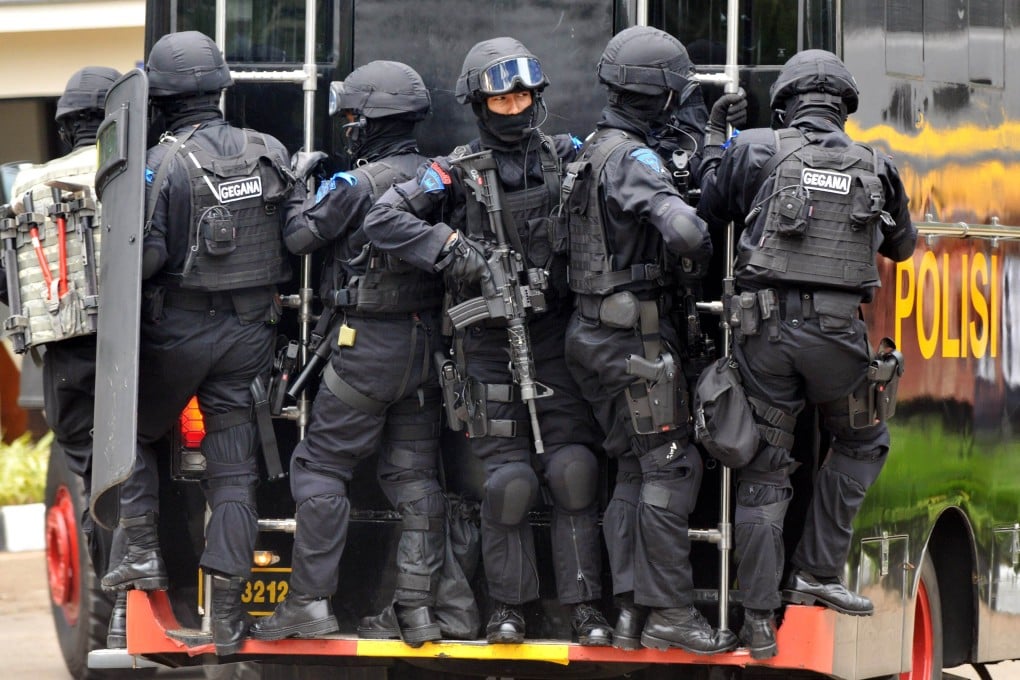Indonesian terrorists planned to attack shop owners in areas with Chinese communities
- Indonesian police have arrested 17 suspected members of the al-Qaeda-linked terrorist group Jemaah Islamiah
- Group planned to infiltrate biker groups before attacking shop owners and were motivated by fake news and hoaxes about rise of communism: source

A terrorist plot to attack shop owners in areas of Indonesia that are home to ethnic Chinese communities has been foiled, This Week in Asia has learned.
Police arrested 17 suspected members of the al-Qaeda-linked terrorist group Jemaah Islamiah before the attacks in West Java could be carried out, a senior security source said on Thursday. They also seized seven firearms and hundreds of bullets.
Jemaah Islamiah was the group behind the 2002 Bali bombings that killed 202 people, including 11 Hong Kong residents.

“The plan was to attack shop owners in Banten [province] and Tasikmalaya city,” said the source, saying the plot had been motivated by fake news, “rhetoric and hoaxes” about growing support for communism.
“Some Jemaah Islamiah members really believe communism is on the rise in Indonesia when it is not true,” said the source, who spoke on condition of anonymity as he was not authorised to speak to the media.